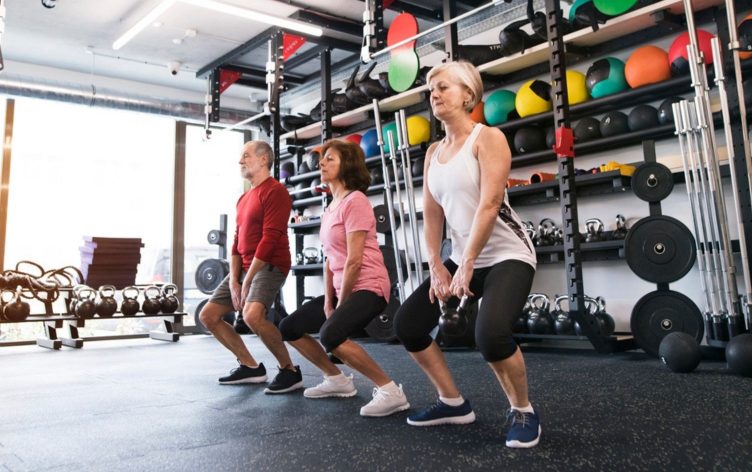
How Much of Aging Is in Our Control?
Age may just be a number, but it dictates so much of our lives, including milestones like driving, voting and retirement. However, people seem to age at different rates, leading many doctors and scientists to believe your real age may vary from the number. This gives some credence to the old adage that you’re only as old as you feel. More accurately, you’re only as old as your health. Turns out your heart health is the best predictor of longevity.
CHRONOLOGICAL VERSUS BIOLOGICAL AGE
Chronological age is the amount of time you’ve been alive. Biological age — sometimes called real age or physiological age — considers lifestyle factors and other health markers to better assess the miles on your body. For that reason, it’s often a better measure of life expectancy. But how, exactly, do you measure it?
There are online age calculators that evaluate your health and fitness levels, asking questions about lifestyle habits and BMI to determine your real age. But according to Dr. Kenneth Cooper, founder and chairman of Cooper Aerobics and a preventive medicine physician at Cooper Clinic in Dallas, such formulas aren’t worth much. Instead, he says it’s primarily about the heart.
“The calcification of coronary arteries is the best and most consistent way to measure physiological age,” he says, noting he prefers the term “arterial age.” He explains that coronary calcification increases with age, so being above or below the expected calcification levels results in your heart being older or younger than your chronological age. For example: If a 65-year-old has the expected coronary calcification of a 55-year-old, it’s reasonable to say their physiological age is 10 years less than their chronological age.
Fortunately, how you live plays a significant role in how your heart ages.
HOW MUCH OF AGING IS IN OUR CONTROL?
A 2018 study published in the journal Circulation analyzed data from more than 100,000 people and identified five key contributors to health and longevity:
- Eat a healthy diet
- Exercise regularly
- Don’t smoke
- Drink only in moderation
- Maintain a healthy weight
They found people who follow these good habits can extend their lives by 10 or more years.
Dr. Cooper points to another study that determined the best predictor of longevity is how fast you can walk. According to the data, if you’re 80 years old and can walk one mile in 17 minutes (that’s a 3.5mph average), there’s an 84% chance you’ll live to 90.
While many health factors are out of our control, we still get plenty of say in the matter. “We can’t just try to focus on curing disease,” says Dr. Cooper. “We need to focus on prevention. What we do for ourselves can have a dramatic effect on how long we live.”
8 HEALTHY TIPS FOR LONGEVITY
Dr. Cooper is 88 years old and still works full-time. He exercises regularly and eats a healthy diet. He even helped to popularize aerobics in the late ‘60s. So, he knows a thing or two about longevity. “No drug can replicate the effects of a healthy lifestyle,” says Dr. Cooper.
Below, he shares his tips for living a long, healthy life.
MAINTAIN A HEALTHY WEIGHT
Maintaining a healthy weight is one of the most important things you can do for your body. A BMI calculator can be a useful tool for finding an average weight range for your height, but it’s not a perfect measurement as it does not take into account muscle mass.
MAKE HEALTHY FOOD CHOICES MOST OF THE TIME
The key here is most of the time. You’re allowed to splurge on occasion. Dr. Cooper subscribes to the 80/20 rule. Make good food choices 80% of the time, and you’ll be on a good path. He also suggests increasing your daily servings of heart-healthy fruits and vegetables to nine from the typical recommendation of five.
EXERCISE MOST DAYS OF THE WEEK
Aim to exercise for 30 minutes per day, five days per week. Find activities you like, whether it’s running, cycling, swimming, basketball or the elliptical machine, and you’ll be more likely to stick with it.
TAKE THE RIGHT SUPPLEMENTS
Eating a balanced diet should be your first defense against vitamin and mineral deficiencies. Use supplements as needed to ensure you’re getting everything your body needs, including vitamin D and omega-3’s.
DON’T USE TOBACCO
Smoking and using other tobacco products is linked to a host of diseases, from lung cancer to heart attacks. Just don’t do it.
CONTROL ALCOHOL
There are benefits and drawbacks to alcohol. Most importantly, if you drink, do so in moderation. For most people that means about one drink per day.
MANAGE STRESS
In addition to affecting your mental health, stress is also linked to physical maladies like increased blood pressure and weight gain. Exercise, meditation, massage and speaking with a friend or therapist are all great ways to manage stress.
GET REGULAR PHYSICAL EXAMS
Receiving a comprehensive picture of your health is the best way to improve it. And that starts with a physical exam to evaluate vital information like your blood pressure, cholesterol and blood sugar, along with lifestyle factors and health behaviors.





